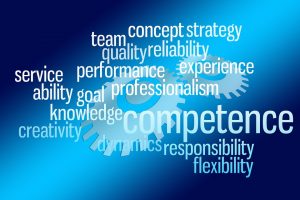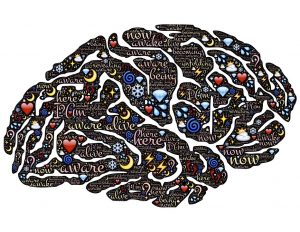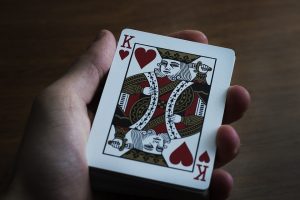 As we have discussed earlier, there are four learning phases to master any skill:
As we have discussed earlier, there are four learning phases to master any skill:
- Unconscious Incompetence
- Conscious Incompetence
- Conscious Competence
- Unconscious Competence
Let's analyze the autopilot state a bit. In poker, we call autopilot unconscious competence or, in other words, poker “muscle memory.” When you switch to autopilot, your game is defined only by the skills you have mastered at the fourth level. Everything that is not mastered at that level (e.g., skills that are mastered at the conscious competence level) will simply be eliminated from your game.
So, if your flop checkraise game falls apart when you are in autopilot mode, it shows that these skills are not yet developed at the fourth level. Although autopilot is generally understood as a bad thing, it is invaluable for identifying which parts of the game are fully automatic and which are not.
When you play your A-game and autopilot is turned off, a conscious conversation with yourself is constantly running in your head. This conversation gives you access to all the conscious competence poker skills, “Here's a good spot to checkraise” or “He has it here, better fold.” It's important to emphasize that the goal in poker is not to eliminate all chatter from your head. Here, unlike in activities such as juggling or dancing, where we aim to “get out of our heads” and “be in the moment.” The conversation that occurs while playing good poker is essential for better mastering the skills that are at the conscious competence level.
Neurological differences between conscious and unconscious processes are not yet well understood, but we know well that they are completely different. And  understanding their differences is especially important for managing your game well.
understanding their differences is especially important for managing your game well.
Consider an example of the difference between driving a car to work in the morning and driving a car during a storm. On a regular day, you drive very inattentively, perhaps listening to music or talking to passengers. However, during a storm, you probably turn off the music, straighten up in your seat, and fully concentrate on the task. Fully focused on driving, you engage all your resources to control the car. Usually, skills such as excellent driving, reactive decision-making, or adapting to weather and visibility conditions are those skills that drivers have not mastered at the unconscious competence level. We intuitively recognize that this goes beyond our unconscious competence limits. So, we adjust our concentration level depending on the needs or dangers of a particular task.
You might argue that poker is more of a mind game, not a physical activity like driving a car. But how is it that this mental game can be automated by our muscle memory so that we don't even need to think about it? This phenomenon can be explained by the process of “chunking.” During this process, large amounts of information are broken down into separate mental units.
A good example of this is analyzing starting hands. When you first played No-limit Hold'em and looked at a hand, e.g., A7o, you understood it as “I have an ace and a seven.” You might have thought that each of these cards could hit a pair and decided it would be quite good. However, now, as an experienced poker player who has encountered many A7s, you treat A7o not as two separate cards but as one clear “chunk.” Therefore, you smoothly and quickly consider how the A7o “chunk” looks against other cards – A5, AJ, 78, KQ, etc.
The more poker we play, the larger and more complex our information units can become. As you continue to gain experience, you will start to understand flops as separate units, e.g., J87 will become such a frequently played flop that you will no longer analyze it card by card, you will see it as one separate unit. And when a 2 appears on the turn, you will no longer need to analyze that card separately because you will know perfectly well how you should play with your JT when the board is J87 + low blank. Once something is assigned to a “chunk,” you no longer need to analyze it consciously, and your hand processing speed significantly increases. You no longer need to think, “What do I beat and  what don't I beat on this board, how many hand combinations are against me?” Instead, you just unconsciously “feel” the strength of your hand on this board and play accordingly.
what don't I beat on this board, how many hand combinations are against me?” Instead, you just unconsciously “feel” the strength of your hand on this board and play accordingly.
Once a skill transitions to unconscious competence, it is almost always combined into a larger “chunk (information unit).” And since such information combining requires deeper experience, the only way to reach the level of unconscious competence is to spend thousands of hours analyzing situations until the analysis itself crystallizes into certain units. Then such spots will be subconsciously resolved.
So, when I ask you, “Why do you think A83 is a bad board to checkraise?” you probably won't have an immediate answer; you will probably feel it intuitively. It will be part of a certain information unit in your head that you just “feel.” But if you think for a second, you will retrospectively explain: “Well, if I checkraise on such a board, I will represent very few hands, with aces I could check/call, and if the opponent had bigger aces, he would raise preflop.”
We all have decisions delegated to “feeling,” but most of us can still reconstruct the necessary theory if we need to analyze something. According to popular myths, a player who relies on feelings cannot do this.
Haseeb Qureshi





